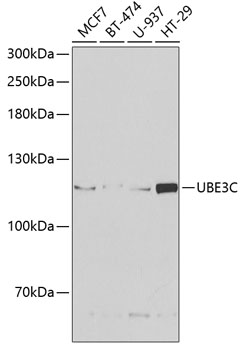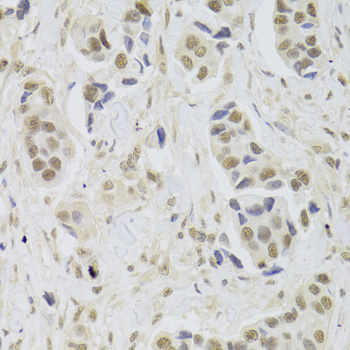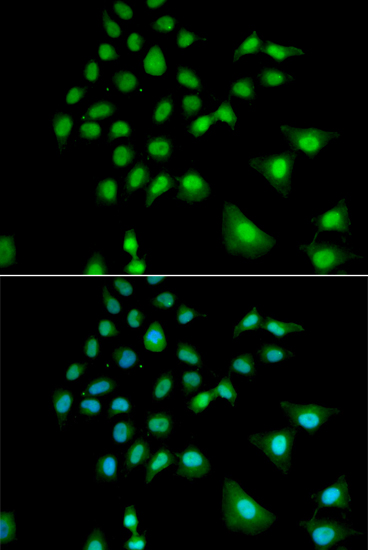-
Product Name
UBE3C Polyclonal Antibody
- Documents
-
Description
Polyclonal antibody to UBE3C
-
Tested applications
WB, IHC, IF
-
Species reactivity
Human
-
Alternative names
UBE3C antibody; HECTH2 antibody; ubiquitin-protein ligase E3C antibody
-
Isotype
Rabbit IgG
-
Preparation
Antigen: Recombinant fusion protein containing a sequence corresponding to amino acids 1-270 of human UBE3C (NP_055486.2).
-
Clonality
Polyclonal
-
Formulation
PBS with 0.02% sodium azide, 50% glycerol, pH7.3.
-
Storage instructions
Store at -20℃. Avoid freeze / thaw cycles.
-
Applications
WB 1:500 - 1:2000
IHC 1:50 - 1:200
IF 1:10 - 1:100 -
Validations

Western blot - UBE3C Polyclonal Antibody
Western blot analysis of extracts of various cell lines, using UBE3C antibody at 1:1000 dilution.Secondary antibody: HRP Goat Anti-Rabbit IgG (H+L) at 1:10000 dilution.Lysates/proteins: 25ug per lane.Blocking buffer: 3% nonfat dry milk in TBST.Detection: ECL Basic Kit .Exposure time: 90s.

Immunohistochemistry - UBE3C Polyclonal Antibody
Immunohistochemistry of paraffin-embedded human breast cancer using UBE3C Antibody at dilution of 1:100 (40x lens).

Immunofluorescence - UBE3C Polyclonal Antibody
Immunofluorescence analysis of U2OS cells using UBE3C antibody . Blue: DAPI for nuclear staining.
-
Background
E3 ubiquitin-protein ligase that accepts ubiquitin from the E2 ubiquitin-conjugating enzyme UBE2D1 in the form of a thioester and then directly transfers the ubiquitin to targeted substrates. Can assemble unanchored poly-ubiquitin chains in either 'Lys-29'- or 'Lys-48'-linked polyubiquitin chains. Has preference for 'Lys-48' linkages. It can target itself for ubiquitination in vitro and may promote its own degradation in vivo.
Related Products / Services
Please note: All products are "FOR RESEARCH USE ONLY AND ARE NOT INTENDED FOR DIAGNOSTIC OR THERAPEUTIC USE"
